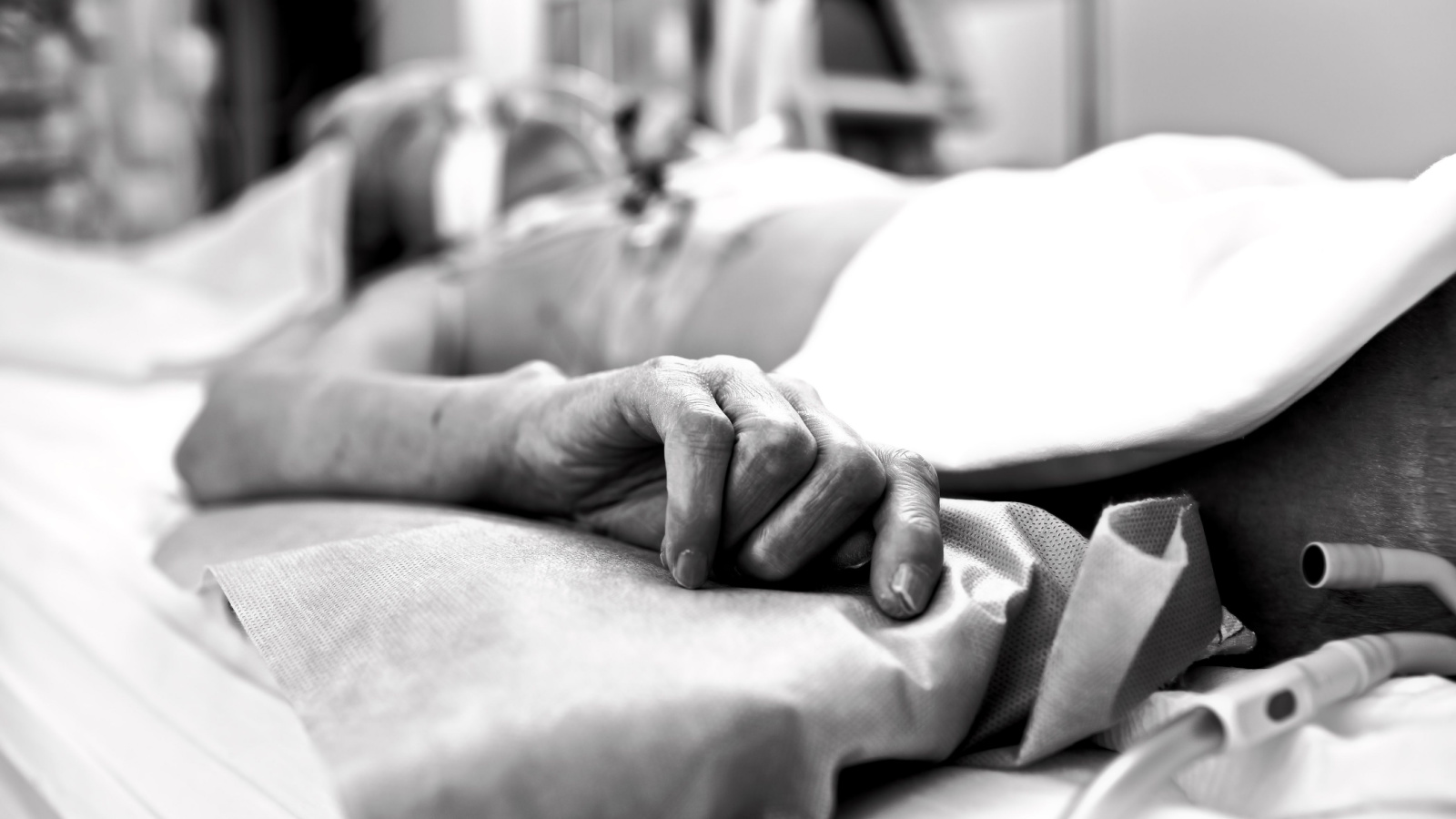Conscious Pain and Suffering

Conscious pain and suffering. When tragedy strikes and someone you love is unjustly taken from you, understanding the intricacies of legal terminology is likely the last thing on your mind. However, the legal concept of “conscious pain and suffering” is important for families filing survival action claims. While wrongful death claims address the profound loss survivors feel, survival action claims seek justice for the distress and agony experienced by the deceased from the time of the injury to their untimely passing.
If a loved one passed because someone else broke the rules, Burger Law will hold the liable party accountable, stand up for justice and get you and your family the recognition and full financial recovery you deserve. With offices in St. Louis, Chicago and elsewhere, we fight for surviving family members throughout Missouri and Illinois. Call us today at or contact us online for a free case review.
Understanding Conscious Pain and Suffering
You may have heard of pain and suffering in personal injury claims. Pain and suffering are non-economic damages that compensate the injured for the physical discomfort and mental anguish stemming from their injuries.
“Conscious pain and suffering” is a legal term that comes into play within survival action claims. Survival action claims compensate surviving family members for the damages the loved one sustained while they were still alive*. Conscious pain and suffering specifically refers to the distress and torment – both physical and emotional – that your loved one experienced between the time of their injury and their passing.
*You can read more about the difference between a survival action and wrongful death claim here.
Key Components of Conscious Pain and Suffering
- Physical pain —
- Actual discomfort or agony resulting from the injury
- Examples include pain from broken bones, burns or internal injuries
- Emotional and psychological distress —
- Fear, anxiety or depression stemming from the trauma of the event
- The emotional toll of knowing one’s life is in danger or coming to an end
- Duration of awareness —
- The period between the injury and death during which the individual was conscious and aware of their suffering
- This can range from moments to days or even longer
In order to make a claim for conscious pain and suffering, courts require that your loved one was conscious, aware of their injuries and able to perceive the pain.
Why Conscious Pain and Suffering Matters
Understanding and recognizing conscious pain and suffering is crucial in ensuring justice is served. It acknowledges the agony endured by your loved one and seeks compensation for that specific anguish, separate from other damages like medical bills or lost wages. The “purpose” of civil claims for injuries is to make you whole again. No lawsuit can bring back a family member, so our justice system uses monetary compensation as a way to provide survivors with justice, recognition and a more secure future without their loved one. At Burger Law, we demand that negligent parties are held accountable for the pain they’ve caused. We know the profound impact these experiences have had on you and your loved ones, and we’re committed to fighting for justice on your behalf.
Examples of Conscious Pain and Suffering
The following scenarios aren’t based on actual cases, but offer insight about when and how conscious pain and suffering is a part of survival action and wrongful death claims:
High-Speed Highway Collision
- Scenario — A motorcyclist, while trying to merge onto the highway, gets hit by a speeding car. Bystanders rush to his aid, and they observe him in clear distress. He attempts to move but shows signs of severe pain. He struggles to communicate with emergency personnel and dies in the ambulance before arriving to the hospital.
- Conscious Pain and Suffering — The brief yet intense moments of distress, pain and fear of death following the accident.
Construction Worker Accident
- Scenario — A worker at an industrial plant gets trapped under heavy machinery due to a safety oversight. While co-workers manage to free him and emergency services are called, he remains in a state of excruciating pain, aware of his grave injuries. Despite efforts to save him, he succumbs to his injuries after ten days.
- Conscious Pain and Suffering — The prolonged period of physical pain and the emotional trauma of confronting impending mortality over several days.
Extended Complications from Medical Malpractice
- Scenario — After a relatively standard medical procedure, an elderly patient begins showing signs of severe complications due to a medical oversight. Over the ensuing months, she endures repeated hospitalizations, chronic pain and the emotional burden of knowing her condition is deteriorating through no fault of her own. The cumulative effects lead to her passing away after several months of suffering.
- Conscious Pain and Suffering — The months-long ordeal of physical pain, combined with the emotional distress of a declining health trajectory caused by a preventable error.
Whether it lasts moments or months, the impact is profound. At Burger Law, we understand this gravity, and we’re committed to fighting for justice for those who’ve endured these harrowing experiences. Every moment of life has value, and we’re here to ensure your loved one’s darkest moments are acknowledged and compensated.
Proving Conscious Pain and Suffering in Your Survival Action Claim
Pain and suffering is inherently subjective; none of us can know exactly how someone else is feeling. But, there are ways to demonstrate to an insurance adjuster, judge and/or jury how your loved one spent their final moments, days or months:
- Medical records —
- Serve as foundational evidence
- Detail injuries, treatments and the patient’s response
- Indicate the potential level of pain and distress experienced by your loved one
- Eyewitness testimonies —
- Accounts from individuals present at the incident scene or who interacted with the victim post-incident
- Can recount a victim’s expressions of pain, last words or outbursts or other indications of distress
- Accounts from family, friends and others who knew your loved one well and saw how their pain and suffering changed them and their life
- Expert witnesses —
- Medical professionals elucidating probable pain associated with specific injuries
- Psychologists or psychiatrists weighing in on likely emotional and mental suffering
- Emergency responders and medical staff testimonies —
- Professionals who might have been first on the scene or first to treat the victim
- Offer insights into the immediate aftermath, your loved one’s state of consciousness, displayed pain levels and how they compare to other people with similar injuries
- Personal diaries, letters or communications —
- Documents where your loved one might have recorded their experiences, feelings or pain levels
- Serve as personal accounts and evidence of their conscious suffering
Compensation Awarded for Conscious Pain and Suffering
Assigning a monetary value to the profound distress and trauma of conscious pain and suffering is one of the most challenging aspects of personal injury law. The anguish of your loved one’s final moments, whether they span mere seconds or extend across months, isn’t easily quantified. At Burger Law, we pursue every bit of compensation available to ensure that this suffering is adequately acknowledged and compensated.
Factors that influence the perceived value of your loved one’s conscious pain and suffering include:
- Severity and duration of pain — The intensity and length of the pain experienced can significantly impact the compensation amount. Moments of extreme agony might be valued differently from prolonged periods of moderate pain.
- Medical evidence — Medical records, expert testimonies and documented treatments can provide insights into your loved one’s physical and emotional pain, influencing the claim’s worth.
- Impact on quality of life — Consideration of the victim’s age, health prior to the incident and the potential joys of life they were deprived of can all factor into determining value.
- Legal precedents — Previous cases with similar circumstances can provide a benchmark for determining the value of conscious pain and suffering.
Your Next Step: Join Hands with Burger Law
If your family has lost a loved one due to another’s negligence, you don’t have to navigate this challenging terrain alone. With Burger Law by your side, you’ll have a team of professionals who are aggressive in their pursuit of justice, direct in their approach, and deeply compassionate about how your loved one’s wrongful death has affected your family. We’re here to amplify your voice, stand up to insurance companies and demand the justice your loved one deserves.
Act Now for Justice and a Full Financial Recovery
The road to justice begins now. Reach out to Burger Law today. Let us shoulder the legal burden, so you can focus on grieving and remembrance. Call us now at or fill out our online contact form for a free consultation.

